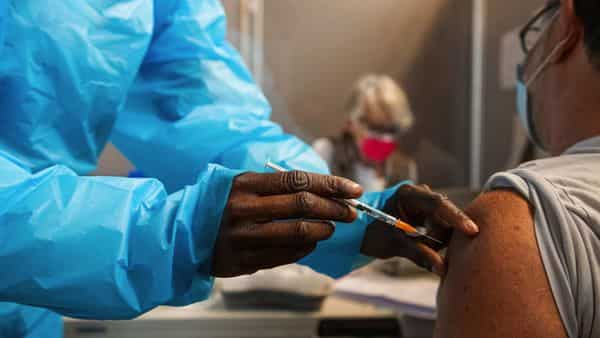How vaccination lost its sacred stature

Until a few months ago, India’s beautiful people whose head of state is Barack Obama saw Americans who opposed vaccination as semi-literate simpletons in the intersection of God, guns and a flat earth. But now, the covid pandemic has demonstrated that scepticism of sacred scientific ideas is prevalent even in the upper reaches of India’s socio-economic pyramid.
For the first time, a whole generation of adults had to make a decision to vaccinate themselves, not only their children. And they have revealed that paranoia over vaccines is a mainstream phenomenon. Fearing death and other inconveniences, hundreds of millions still do get vaccinated, but the past few weeks have established how easy it is to shake their adoration of a cornerstone of medical inoculation—that what does not kill you will make you stronger.
Covid vaccines, like other major vaccines, are backed by the richest democracies, the biggest pharmaceutical corporations, and the most venerated scientists and health organizations. Yet, at the slightest tug, even Indians who are considered refined have revealed either a fear or mistrust of them. Just that they express this paranoia with more sophistication than American anti-vaxxers who cite conspiracy theories and religion.
So often, a conservative niche foreshadows a common human behaviour. What the respectable media implies is ‘nutty’ turns out to be routine, though expressed in different ways in different cultures. In any region of the world, something about people who are close to their roots points to how most people in the world think, while people who eat expensive leaves alien to their soil are parodies of what they wish to be.
Almost every person in the world, perhaps, is a beneficiary of vaccination. Yet, all nations have to resort to public campaigns to lure people to vaccination centres. In the US, the governor of Ohio announced that he will give away a $1 million prize every week for five weeks in a lottery open to any state resident who has got vaccinated. In Japan, public trust in the safety of vaccines is low, a factor that has influenced the fact that only 1% of the nation’s population have received both doses of a covid vaccine. Despite a shortage of vaccines, India has been nagging its people to get the jab. Even the Delhi high court observed, “You have been playing that one irritating message on the phone whenever one makes a call… when you don’t have enough vaccines.”
That most of the world has to be coaxed to do the sensible thing is not surprising. But why have the kind of people who used to have contempt for anti-vaxxers turned cold to covid jabs?
One reason is respectable. After all, these vaccines were developed at an unprecedented speed. The people who run the world fanned the fears of major side-effects. Some developed nations paused their vaccination roll-outs in reaction to initial concerns of adverse effects. For Indians, the government is never the most reassuring entity. After your first dose, India sends you an SMS: “You have been vaccinated with first dose of covid-19.” This sort of message can cure hiccups.
Also, there is the question of how effective covid vaccines are. Why tamper with the body’s immune system at all, some Indians ask, if the efficacy of vaccines is uncertain?
But there are other reasons why India’s upper classes may have developed anti-vaxxer sentiment, and these are not very different from what influence US anti-vaxxers.
Too much information, for example. There is excessive news today. Millions of words and hours of podcasts on every issue, every fear, every bit of research. The streams of information are so vast and confusing that people can be influenced by a scholarly form of paranoia that comforts their present state of mind. Some people may have been better informed, even happier, if their internet connections were not so good.
By the way, one influential force in the US anti-vaccination movement was The Lancet, a brand name that is often followed by ‘the prestigious medical journal’. About 20 years ago, it ran a paper by one Andrew Wakefield that linked the Measles-Mumps-Rubella (MMR) vaccination and autism. Like US anti-vaxxers, the sophisticated here too arm themselves with information that amplifies what they want to believe.
In many ways, the age of influence itself is over. For most of our history, a small group of people had an outsized impact on the world. This is not true anymore. The easy transmission of ideas has replaced influence with corroboration. How you are feeling at one moment or another can determine your facts. Modern influencers are in reality corroborators. They are allowed to look influential so that they are more effective corroborators. Even on important matters of health, every belief finds corroboration.
Also, the medical sciences have lost their sacred stature. There are too many contradictory statements emanating from the establishment, and at times Western medical opinion has been irrelevant to the rest of the world. Giant scientific organizations and the West itself have lost their halos.
You may argue that people who can spell ‘anti-vaxxers’ should be able to rise above the chaos and make rational decisions. But then it’s a mistake to attribute special wisdom to people who are good at spelling.
Never miss a story! Stay connected and informed with Mint.
Download
our App Now!!


